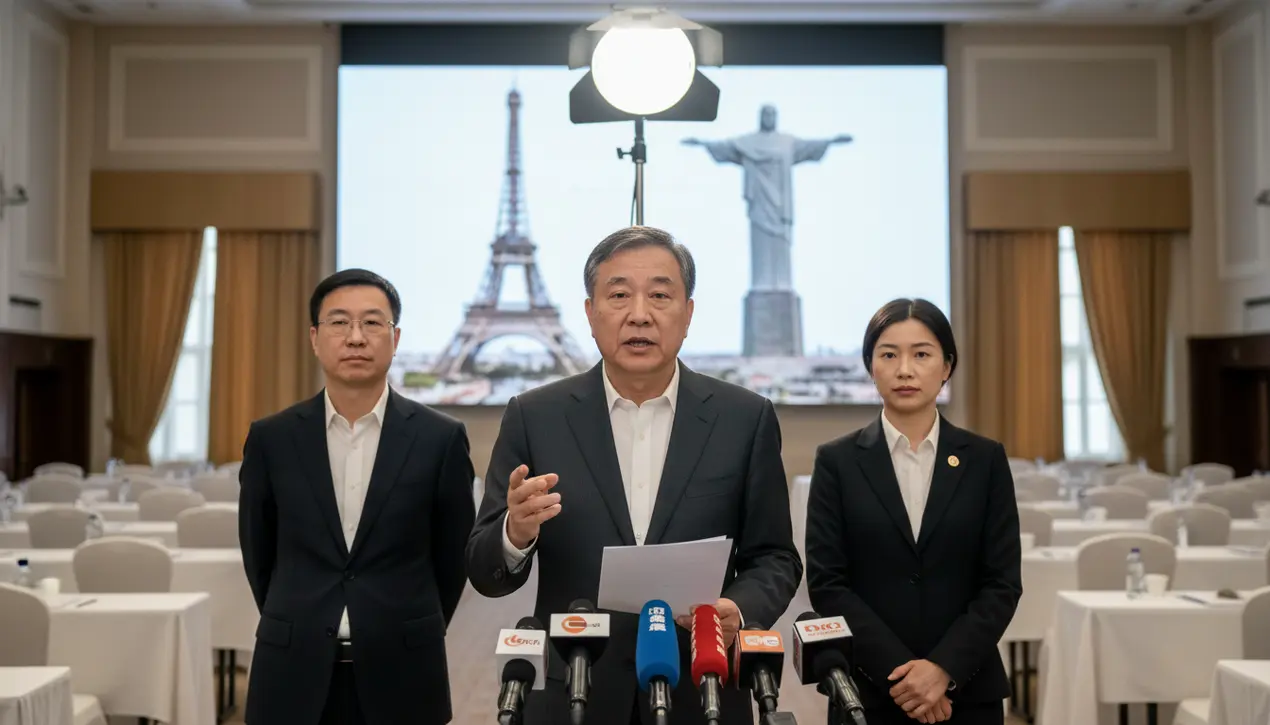
FinancemarketsMarket Volatility
China's securities regulator appears after resignation rumors.
OL
Oliver Scott
2 hours ago7 min read
In a move that sent immediate shockwaves through global financial circles, China’s top securities regulator, Wu Qing, made a conspicuous public appearance just hours after swirling rumors suggested he had tendered his resignation—a development that analysts are interpreting as a calculated maneuver by Beijing to preempt market destabilization. The China Securities Regulatory Commission (CSRC) moved with unusual speed and transparency, issuing a detailed statement on Thursday confirming Chairman Wu’s official travel itinerary to France and Brazil from November 10 to 13, and prominently featuring photographic evidence of his diplomatic engagements on its official website.This prompt and highly public rebuttal to the resignation whispers underscores a critical vulnerability for Chinese authorities: the immense sensitivity of its financial markets to perceptions of instability within its regulatory leadership. The context here is crucial; Wu Qing, often referred to as the 'Broker Butcher' for his prior, aggressive crackdown on malpractice, was only appointed to helm the CSRC in February, a move intended to restore confidence and impose discipline on a stock market reeling from a protracted slump and a crisis in the property sector.His potential departure, therefore, wasn't merely a personnel change but a potential trigger for a catastrophic loss of investor faith. The very genesis of such a rumor—its source, its propagation through financial media, and its almost instantaneous market impact—reveals the fragile ecosystem in which China's capital markets operate, where political narratives can swiftly translate into billions in market capitalization evaporating.Historically, China has utilized similar public appearances to quell speculation; one recalls the sudden disappearance and subsequent reemergence of key figures like Xiao Jianhua, though Wu's case is distinct in its preemptive, rather than reactive, nature. The strategic dissemination of his itinerary and photos acts as a non-verbal, yet unequivocal, signal to both domestic and international investors: the pilot remains firmly at the controls.The choice of France and Brazil as destinations is itself analytically significant, pointing to China’s broader geopolitical and economic strategy to deepen financial ties outside the dominant US dollar system and court strategic partners in the Global South. However, this incident exposes the persistent underlying tension in China’s financial governance—the struggle between implementing necessary, market-oriented reforms and maintaining the Communist Party's absolute control.A sudden leadership vacuum at the CSRC could have derailed delicate ongoing processes, including efforts to stabilize the yuan, manage the fallout from developer defaults, and navigate complex negotiations with international audit regulators. The risk scenario, had the rumor been left unaddressed, was not merely a bad trading day but a potential cascade of selling, reinforcing the perception of China as an unpredictable and high-risk environment for capital. This episode serves as a stark reminder that in the world's second-largest economy, political risk and market risk are inextricably linked, and the most potent tool in the regulator's arsenal is often not a new policy, but the visible, verifiable presence of its chief.
#lead focus news
#China
#securities regulator
#Wu Qing
#resignation report
#market stability
#CSRC
Stay Informed. Act Smarter.
Get weekly highlights, major headlines, and expert insights — then put your knowledge to work in our live prediction markets.
Related News
Comments
Loading comments...
© 2025 Outpoll Service LTD. All rights reserved.